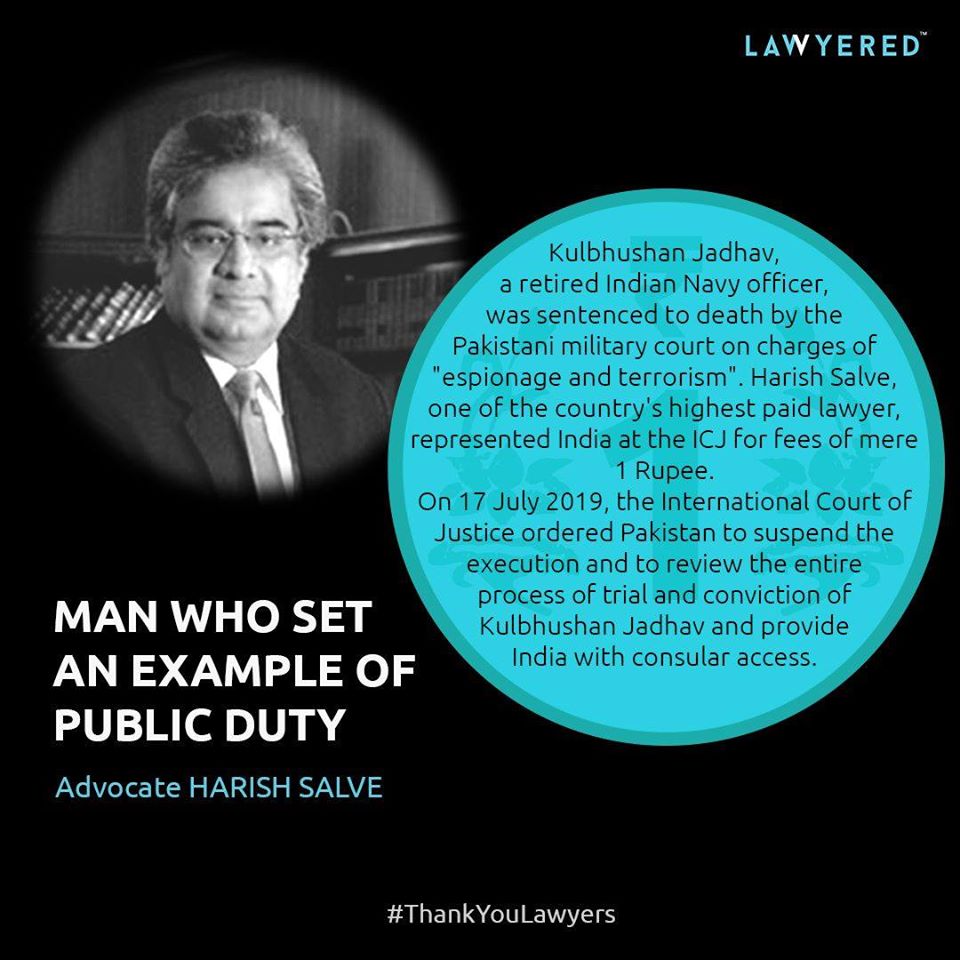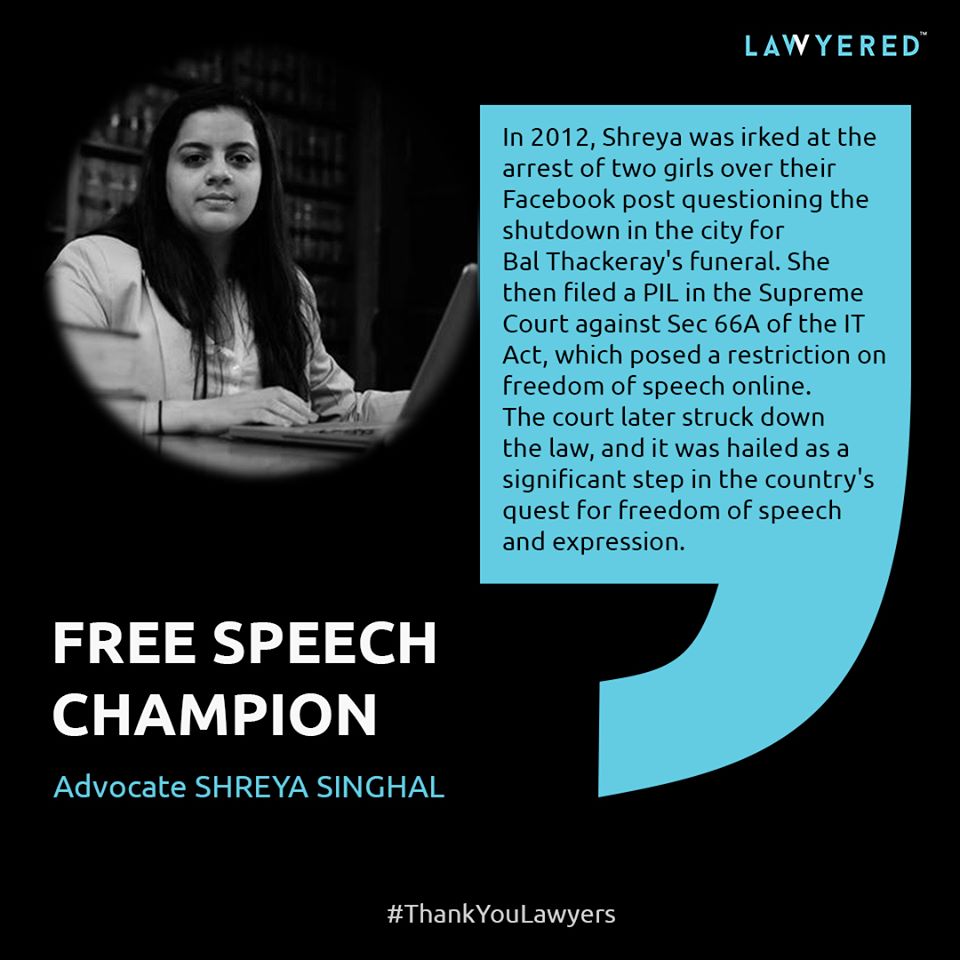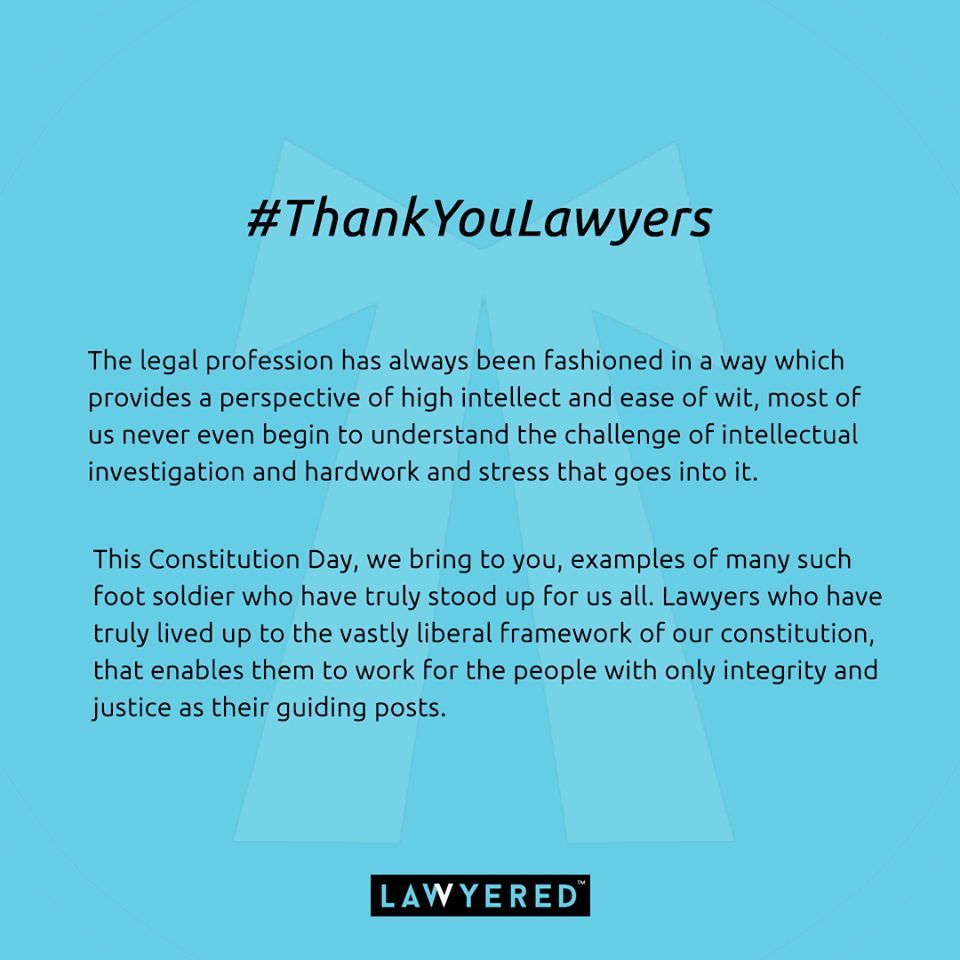This Constitution Day, let us thank lawyers who have worked with integrity and justice in their minds, for the sake of making the society a better place.

In a profession often perceived to be money-grubbing, a few lawyers reinstall the faith of a common man in the noble profession by setting an example of public duty. Advocate Harish Salve, one of the finest brains in the legal circles, represented India in the ICJ to successfully defend the execution of Kulbhushan Jadhav for a fee of Rs. 1. This Constitution Day, let us thank Advocate Harish Salve and other lawyers who continue to work with dignity, keeping the nation’s interest ahead.
Click Here and join us in thanking our lawyers

Advocates Arundhati and Menaka spearheaded the fight for the rights of the LGBTQ community that has battled on both social and legal fronts for their freedom to express love. The revolutionary advocates were successful in striking down the 158-year old British law. Their relentless fight for justice inspires the community to progress collectively and to make an effort to understand, accept, and love. This Constitution Day, let us take a moment to thank these lawyers for their noble contribution to the democracy of India.
Click here and join us in thanking our lawyers

Advocate Shreya Singhal, a 28-year old lady left no stones unturned to restore the faith of a common man in the noble profession. In quashing Section 66A, in Shreya Singhal, the Supreme Court has not only given afresh lease of life to free speech in India but has also performed its role as a constitutional court for Indians. Freedom of speech and expression is our fundamental right under article 19 of the Indian constitution. Let us come together to thank Advocate Shreya and all other lawyers for their contribution towards society.
Click here and join us in thanking our lawyers

In a country where very few people dare to raise their voice against unethical profiteering by private hospitals, Advocate Birender Sangwan courageously took up the cause and became the helm of a drastic change that would continue to benefit the society at large. This Constitution Day, let us come together to thank Advocate Birender Sangwan and other lawyers who fight against such malpractices and restore the faith of a common man in the judicial system.
Click here and join us in thanking our lawyers









